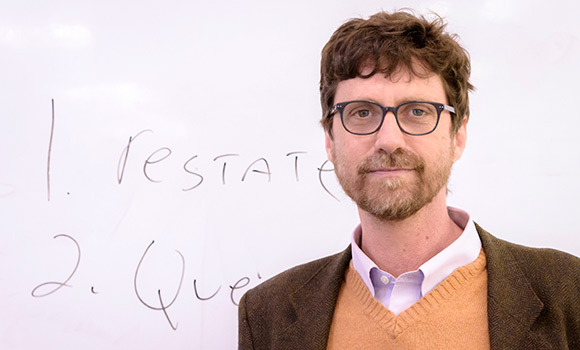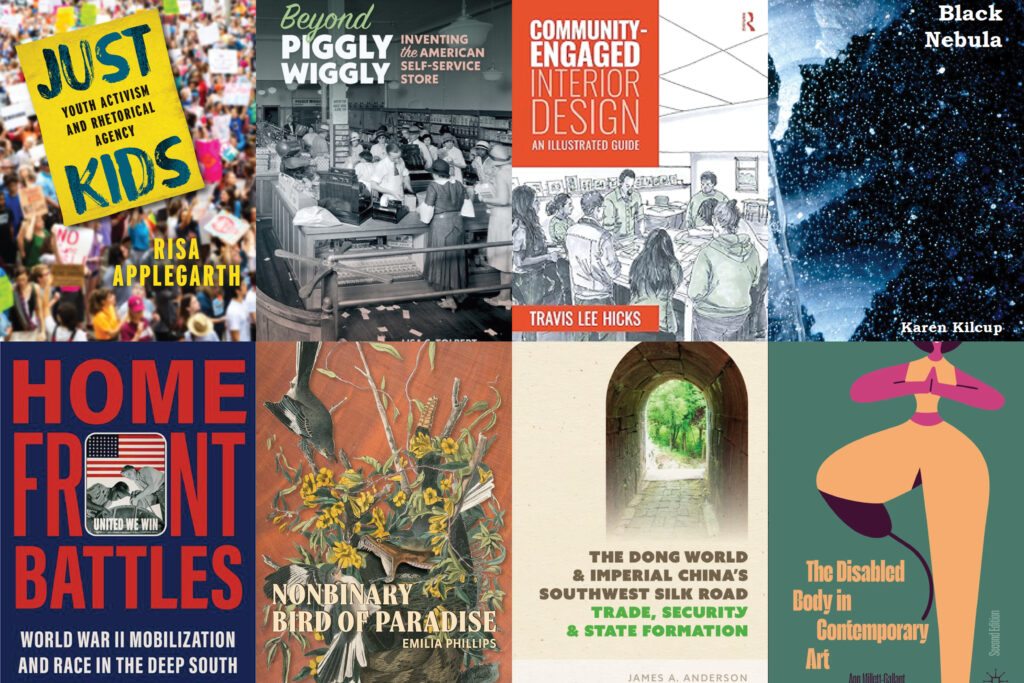It’s become a popular debate in contemporary society: Are video games causing young people to become more violent? Or are they just another form of entertainment?
Just last week, a new study emerged that ties video games to physical aggression. Yet according to an article in the Scientific American, the debate “is by no means over,” with researchers still disagreeing on the findings and their significance.
UNC Greensboro religious studies professor Dr. Gregory Grieve is taking a different approach to the subject of video games and evil. Grieve thinks the arguments of both sides may be too simplistic, so he’s looking beyond the current controversy to understand how evil works in video games.
“Evil plays a large part not only in how video games are read by audiences, but also how they are designed,” Grieve explains. “There’s this good versus bad struggle that is a common theme.”
Grieve started this new project over the summer, thanks to a UNCG Faculty First Grant that allowed him to spend time at the Game Research Lab and Centre of Excellence in Game Studies at the University of Tampere in Finland. Last week, as part of a three-year working group on Public Theologies of Technology and Presence, he gave his first public talk on the subject in Berkley, California.
In order to explore the role of evil in video games, Grieve starts with a close reading of a game – the same way that an English professor would do a close reading of a novel. He then talks to designers and players, and conducts an analysis of the paratextual materials, such as the fan fiction and comments on YouTube.
Grieve hypothesizes that humans have always had myths about good and evil, and video games have become the newest outlet for people to engage in these notions of evil. However, unlike a novel or a movie, people are actually interacting with evil – perhaps fighting a dragon, zombies or cult members.
“People have always tried to understand why there is evil in the world. Video games are just another place where people are trying to figure that out.”
So how does a religious studies professor end up studying video games?
Throughout his career, Grieve has always studied popular culture and religion. About a decade ago, he began studying the role of Buddhism online, specifically in the virtual world of the popular online game “Second Life.” From there, his students started asking him about video games.
“Video games became a natural extension of my work – especially how they get students to engage with ethics,” he says.
In the spring, Grieve will bring his research into the classroom when he teaches a new course on religion and evil.
Ultimately, the work will culminate in a book.
“I think this work is significant because it can show us how notions of evil are used in contemporary society,” he says. “Video games are a lens to understand this bigger issue.”
Story by Alyssa Bedrosian, University Communications
Photography by Martin W. Kane, University Communications
[Original Story]






